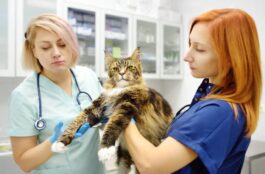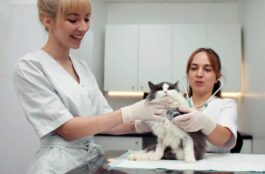
Aging is a natural part of life, and pets become seniors at some point. The number of years required to qualify as a senior pet varies. It is entirely up to the particular pet. Dogs are regarded as seniors by the age of seven, whereas cats are regarded as seniors at eleven to fourteen. It’s worth mentioning, though, that larger dogs mature faster than smaller canines. As a result, a Great Dane at six years old is regarded as a senior, whereas a Chihuahua at the same age may be considered middle-aged. Let’s take a look at some pet care advice for senior pets.
Senior Pet Care Tips
Senior pets demand extra care than younger pets. Aging pets become less mobile. They become sick more easily and lose their hearing and vision. But healthy and happy senior cats and dogs exist. Here are five vital old pet care guidelines to keep your canine partner happy in their golden years. They deserve it.
Schedule frequent consultations with a vet.
Regular veterinarian appointments are critical for all pets but become even more critical and regular as they age. As with senior citizens, pets grow more susceptible to various diseases as they age. We recommend that you visit All Pets Veterinary Hospital at least twice a year for your old dog or cat. The doctor will do dental treatment, exams, and blood testing to establish a health baseline during these appointments. This enables early disease detection and treatment.
Keep an eye on your pet’s diet.
Adult cats and dogs frequently struggle with dietary concerns, such as lack of appetite, chewing, and obesity. Additionally, as they become less active, they consume fewer calories. You must adjust your pet’s diet to ensure that they maintain a healthy lean muscle mass and an appropriate weight. Keeping an eye on their diet will also aid in maintaining a healthy immune system. Pets that are overweight are more likely to have sickness and joint problems later in life. If your four-legged companion suffers from joint problems, glucosamine or fish oil supplements may benefit.
Provide consistent exercise.
Exercise becomes increasingly vital as your pet ages. Your pet may no longer chase the frisbee or jump as high as it once did. However, exercise remains critical to their health. Regular, gentle exercise helps maintain the strength and suppleness of your pet’s muscles. Exercise stimulates hunger, maintains joint health, prevents obesity, and improves mood.
Additionally, it will alleviate boredom and anxiety. Stimulating games such as food puzzles, car rides, playing with toys, going for a walk, or backyard activity can all help maintain your furry friend’s sharpness. Moderation is critical. Consult your veterinarian about an exercise program that is appropriate for your pet’s health and restrictions.
Maintain good oral health
Increasing attention to dental and oral care becomes more critical as your pet ages. Chewing might become difficult due to tooth loss and pain linked with oral and dental illnesses. Dental issues can be avoided if you brush your pet’s teeth daily. If your pet won’t brush, try dental treats or toys. In addition, take your pet to a Rancho Palos Verdes vet regularly for professional dental cleanings.
Conclusion
It is unavoidable that your dog’s needs may change as they grow older. Please pay close attention to what they’re saying, and be sure to shower them with all of the affection they deserve. The greatest approach to appreciate your dog’s senior years is to spend quality time with them and to be grateful for every moment of their life.


